Posted on 6/27/2024
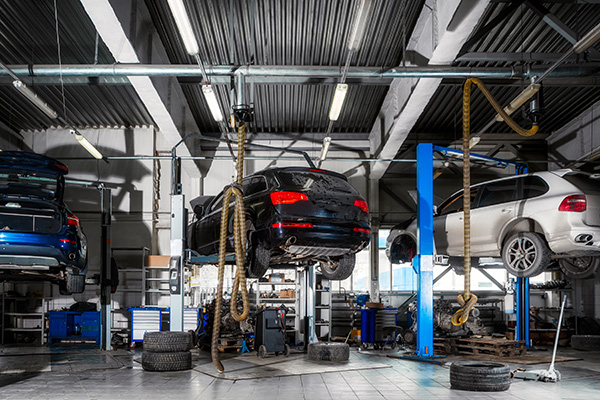
When it comes to maintaining and repairing your vehicle, the choice of where to take it is just as important as the work being done. While national chains and dealerships may seem like the go-to options, local repair shops often provide a superior experience that larger operations can't match. But what makes these local businesses stand out? Personalized Customer Service One of the standout features of local repair shops is the personalized customer service they offer. Unlike large chains, where you might feel like just another customer, local shops often go above and beyond to build client relationships. These small businesses thrive on repeat customers and word-of-mouth referrals, so they are more inclined to provide exceptional service to keep you coming back. When you walk into a local repair shop, you're likely to be greeted by name. The staff will remember your car and its history, providing a more tailored service experience. This level of atten ... read more
Posted on 5/28/2024

In today's complex automotive landscape, ensuring that your vehicle receives the highest standard of care is paramount. Understanding the significance of ASE certification is crucial for every car owner seeking reliable and competent auto repair services. What is The ASE Certification As a car owner, you've likely heard the term "ASE certification" thrown around when discussing auto repair shops or mechanics. But what exactly does it mean? In simple terms, ASE stands for Automotive Service Excellence, and it's a professional certification program designed to test and certify automotive technicians' competency and skills. Established in 1972, ASE certification has become the industry standard for identifying qualified and proficient automotive professionals. The Importance of ASE Certification So, why is ASE certification important? Well, imagine taking your beloved vehicle to a mechanic who isn't adequately trai ... read more
Posted on 4/27/2024
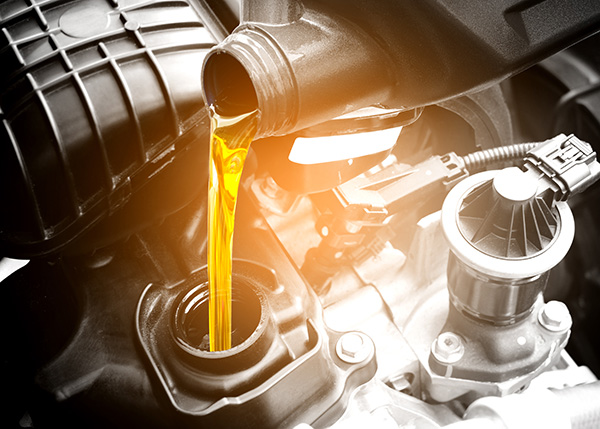
Are you looking to extend the lifespan of your vehicle and keep it running smoothly for years to come? The simple yet essential practice of regular oil changes is the key. How important are oil changes in maintaining the health and performance of your car, and how can this routine maintenance task save you time, money, and headaches down the road? The Role of Engine Oil Engine oil is the lifeblood of your car's engine, lubricating its moving parts to reduce friction and prevent wear and tear. Over time, oil breaks down and becomes contaminated with dirt, debris, and engine byproducts. This degradation can lead to decreased lubrication effectiveness, increased engine friction, and potential damage to vital engine components. Benefits of Regular Oil ChangesImproved Engine Performance Fresh oil ensures optimal lubrication, al ... read more
Posted on 3/29/2024
.jpeg)
Curious about whether the Nissan Kicks is worth considering for your next vehicle purchase? With so many options on the market, it's essential to weigh the pros and cons before making a decision. Stylish Design and Compact Size One of the standout features of the Nissan Kicks is its stylish design and compact size. The Kicks exudes modernity and sophistication with its sleek lines, bold grille, and distinctive floating roof. Its compact dimensions make it easy to maneuver in tight urban spaces while still providing ample interior room for passengers and cargo. Whether navigating city streets or embarking on a weekend getaway, the Nissan Kicks offers style and practicality. Fuel Efficiency and Affordability When it comes to fuel efficiency and affordability, the Nissan Kicks shines bright. With its efficient 1.6-liter four-cylinder engine and continuously variable transmission (CVT), the Kicks delivers impressive fuel economy ratings, making it ... read more
Posted on 2/29/2024
.jpeg)
Your Ford 5.0 Coyote V8 engine is a marvel of automotive engineering, delivering exhilarating power and performance. To ensure it continues to roar with confidence mile after mile, proper care and maintenance are paramount. Come along and take a look at some essential tips to keep your Coyote engine running smoothly and efficiently. Understanding Your Ford 5.0 Coyote V8 Engine Before diving into maintenance strategies, let's briefly delve into what makes the Ford 5.0 Coyote V8 engine tick. This powerhouse is renowned for its impressive horsepower and torque, making it a favorite among performance enthusiasts and automotive aficionados alike. Whether it's powering a Mustang GT, F-150, or other Ford vehicles, the Coyote engine's combination of advanced technology an ... read more
Posted on 1/30/2024
.jpeg)
Reaching 90,000 miles is a significant milestone for any vehicle. With that, you probably know what comes - a shop visit, part of the 30/60/90K mile service interval. However, surpassing this mark doesn't mean you can ease up on your vehicle's upkeep - it's quite the opposite, as you will learn shortly. Why Are Mile Services Important For A Vehicle? Mile services are crucial checkpoints for your vehicle's health. They are like medical check-ups, ensuring everything is functioning correctly and identifying any potential issues before they become significant problems. These services, scheduled at various mileage milestones (most commonly 30K, 60K, and 90K)), help extend the lifespan of your vehicle, maintaining and ensuring safety on the road. What Should Be Done After The 90K Mile Service Once your vehicle hits the 90,000-mile mark, it's essential to ... read more
Posted on 12/22/2023
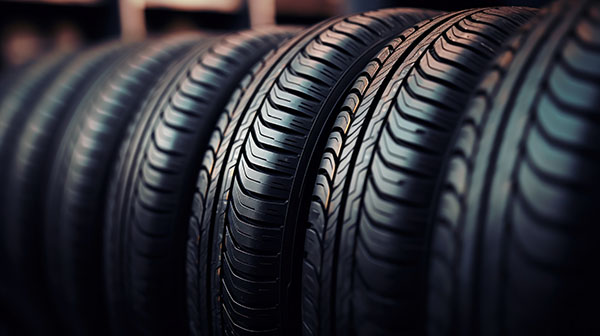
Welcome to the sun-soaked roads of California, where the weather often plays a gentle tune for your driving experience. If you've ever felt the anxiety of choosing tires that match this golden state's unique climate, worry no more! Let's cruise through the top 5 tire picks designed to harmonize with California's versatile weather. 1. Michelin Pilot Sport All-Season 4 The Michelin Pilot Sport All-Season 4 is the master of versatility. Its high-performance adaptability makes it an ideal companion for California's dry and wet seasons alike. With excellent grip on both sunny days and during unexpected downpours, these tires ensure your vehicle moves confidently on any road. 2. Pirelli Cinturato P7 All Season Plus For those seeking fuel efficiency and endurance, Pirelli's Cinturato P7 All Season Plus takes center stage. These tires offer a quiet ride with superb traction, making ... read more
Posted on 11/29/2023
.jpeg)
In a world where every gallon counts, the pursuit of fuel efficiency isn't just a trend - it's a smart move that benefits both your wallet and the environment. If you find yourself wondering, "How can I make my car more fuel-efficient?" you're not alone. Stick through today's article because it will focus on a few ways you can make your car's MPG score higher! 1. Mindful Driving One of the most effective ways to achieve a more fuel-efficient journey is through mindful driving. By avoiding abrupt starts and stops, and maintaining a consistent speed, you can not only conserve fuel but also extend the lifespan of various engine components. This simple approach is not only eco-friendly but also helps you save money on fuel costs in the long run. 2. Tire Maintenance Your tires are the foundation of a powerful and reliable drive. Regularly check and maintain proper tire pressure to ensure optimal performance. Underinfl ... read more
Posted on 10/28/2023
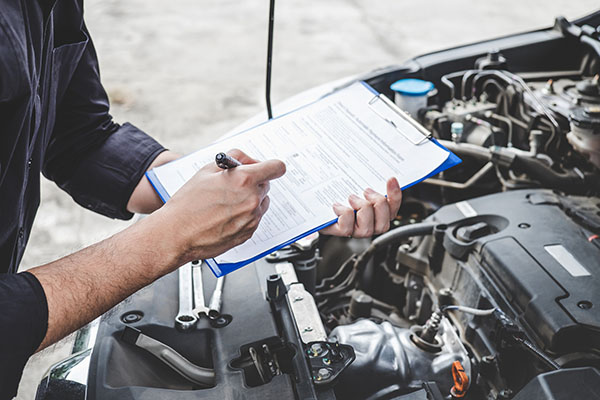
Vehicles break over time - needing maintenance and repairs to keep them running smoothly. Yes, that also includes your trusty Honda Accord, known for its reliability and smooth performance. While it's a beloved model, even the most loyal of steeds can stumble. If you want to stay on top of your Accord’s maintenance game, come along and continue reading as we steer through seven of the most common problems they can experience. Rough Shifting and Slow Acceleration The Honda Accord's transmission issues are notorious, with complaints of gears slipping or rough shifting. To prevent this headache, ensure regular maintenance checks, including fluid inspections and timely replacements. Don't ignore minor hiccups, as they might snowball into major transmission traumas. Squeaks and Squeals That Signal Something Brake noise can be a dreadful ordeal for any Accord owner. Be proactive by opting for high-quality brake pads and rotors during r ... read more
Posted on 9/30/2023
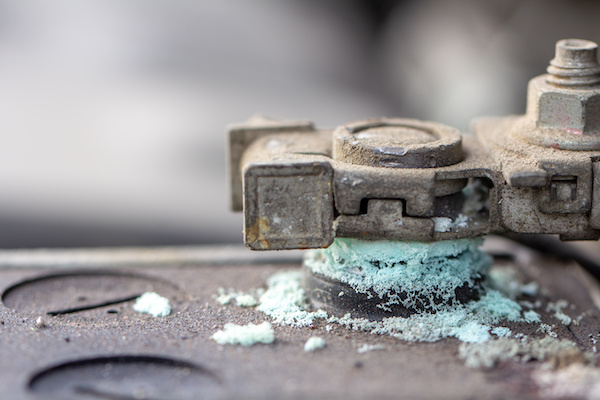
Your car's battery is the heart of its electrical system, providing the necessary power to start your engine and run various components. However, over time, battery corrosion can occur, potentially affecting your vehicle's performance. We'll guide you through the steps to take when you notice battery corrosion, ensuring your battery remains reliable and your car runs smoothly. Identifying Battery Corrosion Battery corrosion typically appears as a white, greenish, or bluish powdery substance around the battery terminals. It can interfere with the flow of electricity and cause various electrical issues in your vehicle. Step 1: Safety First Before you start, ensure your safety. Put on safety glasses and gloves to protect your eyes and skin from contact with the corrosive material. Step 2: Disconnect the Battery To safely clean the battery and terminals, you must first disconnect it. Start by turn ... read more